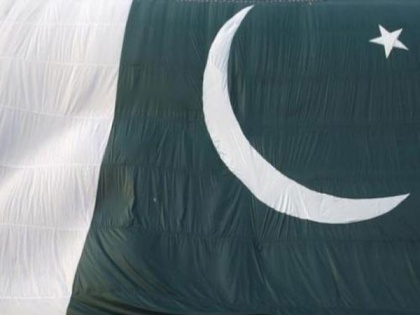Pakistan's hypocrisy on press freedom exposed amid PM's 'don't mind criticism' claim
By ANI | Published: September 11, 2020 11:16 AM2020-09-11T11:16:07+5:302020-09-11T11:30:07+5:30
Prime Minister Imran Khan recently claimed that there is no crackdown on the press in the country. However, the arrest of editors and threats of violence against journalists clearly show the stark reality of the situation in Pakistan.

Pakistan's hypocrisy on press freedom exposed amid PM's 'don't mind criticism' claim
Prime Minister Imran Khan recently claimed that there is no crackdown on the press in the country. However, the arrest of editors and threats of violence against journalists clearly show the stark reality of the situation in Pakistan.
"I don't mind criticism but there is blatant propaganda against the government. Unfortunately, it is the government who feels unprotected, not the media," Khan told Al Jazeera.
There are many who disagree.
As per an article by Brad Adams, director of the Human Rights Watch in Asia, Mur Shakilur Rehman, the editor in chief of the Jang group, has been in pretrial detention since March 12 after being arrested in Lahore by the National Accountability Bureau (NAB) pertaining to a 34-year-old property transaction.
Rehman had requested bail on account of ill-health but was denied by the Lahore High Court. However, the Supreme Court Bar Association and the Pakistan Bar Council termed the ruling as "disappointing and painful".
"The NAB has been widely criticised as being used for political purposes and it's evident that the charges against Rehman were politically motivated. Rehman's ordeal epitomizes the fast-shrinking space for dissent and criticism in Pakistan," wrote Adams.
The article further cited the Jang Groups' allegations of its reporters, editors, and producers receiving dozens of letters of "critical reporting of the NAB. GEO TV, a private channel of the group was forced "off the air" and audience access restricted "as punishment for editorials criticising the government".
"Pakist authorities frequently use prolonged pretrial detention as a form of punishment and intimidation. The United Nations Human Rights Committee, which monitors state compliance with the International Covenant on Civil and Political Rights, has stated that 'pretrial detention should be an exception and as short as possible'," the Asia director for Human Rights Watch wrote further.
"In Pakistan, arbitrary arrest, detention, and baseless criminal prosecutions are used as instruments of press censorship. So long as Rehman and others in the media are punished for practicing journalism, Prime Minister Khan's statement that "I don't mind criticism" is not worth the paper it won't be printed on," Adams wrote.
The United Nations Human Rights Office on Tuesday expressed its concern over the increasing instances of threats of violence against journalists and human rights activists in Pakistan.
"We have followed with increasing concern numerous instances of incitement to violence - online and offline - against journalists and human rights defenders in Pakistan, in particular against women and minorities. Especially worrying are accusations of blasphemy - which can put accused individuals at imminent risk of violence," said a spokesperson for the UN High Commissioner for Human Rights Rupert Colville in a briefing.
Pakistan is ranked 145th out of 180 countries in RSF's 2020 World Press Freedom Index, three places lower than in 2019.
( With inputs from ANI )
Disclaimer: This post has been auto-published from an agency feed without any modifications to the text and has not been reviewed by an editor
Open in app